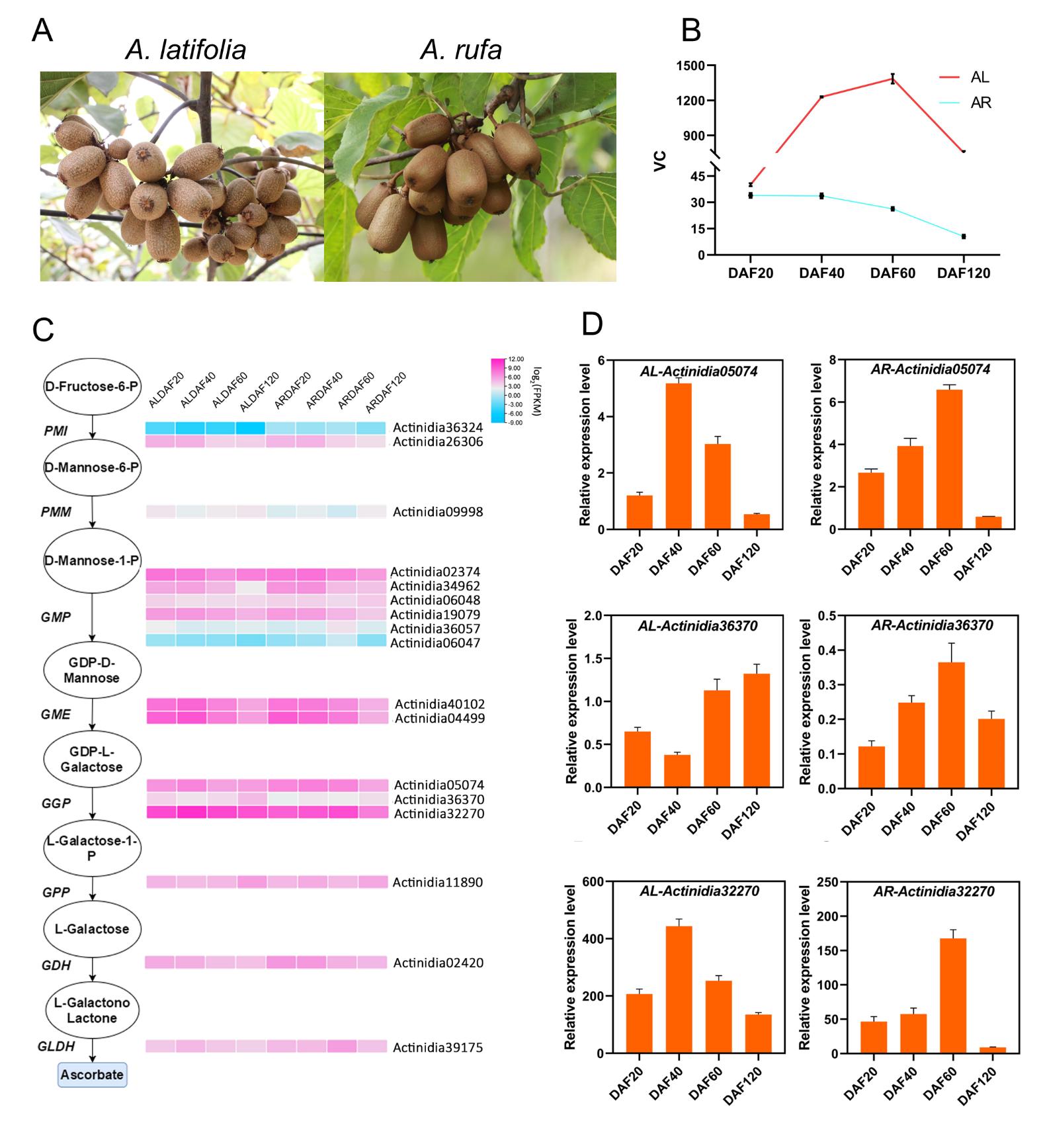The Key Genes Regulating Vitamin C Synthesis Revealed in Kiwifruit
2022-02-14
Ascorbic acid (AsA), which is also called vitamin C, is an essential antioxidant molecule in plant and animal metabolism. A lack of AsA will induce various diseases in humans, and the human diet must incorporate fresh fruits or vegetables, which are the primary sources of AsA for humans. Actinidia (kiwifruit) is known as the king of vitamin C concentration. However, the AsA content varies considerably between kiwifruit species, and the molecular mechanisms of AsA synthesis in kiwifruit are not very clear.
Supervised by Prof. ZHONG Caihong and Associate Prof. LI Dawei, Ph.D. student LIU Xiaoying from Wuhan Botanical Garden analyzed the comparative transcriptomes of two kiwifruit species, A. latifolia and A. rufa, to uncover key genes that regulated AsA synthesis in kiwifruit, and further elucidated the AsA regulatory network by transgenic and protein interaction experiments.
They collected transcriptome sequencing datasets at different stages during the development of fruit at DAF20, DAF40, DAF60, and DAF120 (DAF, days after fruiting) from Actinidia species with significant differences in AsA content.
Results showed that AsA-associated DEGs (differentially expressed genes) mainly responded to abiotic signals and secondary metabolic pathways. The transcriptome analysis identified that the GGP3 (GDP-L-galactose phosphorylase-3) was an important candidate regulator of AsA synthesis in kiwifruit. Next, the expression of GGP3 increased 1.4-and 3.1-fold, and the AsA content rose 2.0-and 6.4-fold, respectively compared to those of the wild type.
Transcriptomic analysis showed that there was different expression between the transgenic lines and the wild type. Two transcription factors (TFs) with the highest correlation with GGP3 were screened to verify their protein interaction relationships. The results showed that AcESE3 (an ethylene-responsive TF) interacted with AcGGP3 (Actinidia32270) and AcMYBR (an MYB TF) at the protein level, implying that the interactions of these proteins may play an important role in the regulation of AsA systhesis.
These results enlighten the mechanism of AsA synthesis in kiwifruit and provides important clues for future kiwifruit AsA research and high-AsA kiwifruit breeding.
This research was financially supported by the National Key R&D Program of China, Science and Technology Department of Hubei Province and National Natural Science Foundation. Results have been published in the International Journal of Molecular Science entitled “Comparative Transcriptome Analysis Revealed the Key Genes Regulating Ascorbic Acid Synthesis in Actinidia”.

Expression patterns of expressed genes in the L-galactose pathway assigned to AsA synthesis in the DAF20, DAF40, DAF60, and DAF120 transcriptomes of A. latifolia (AL) and A. rufa (AR) (Image by LIU Xiaoying)